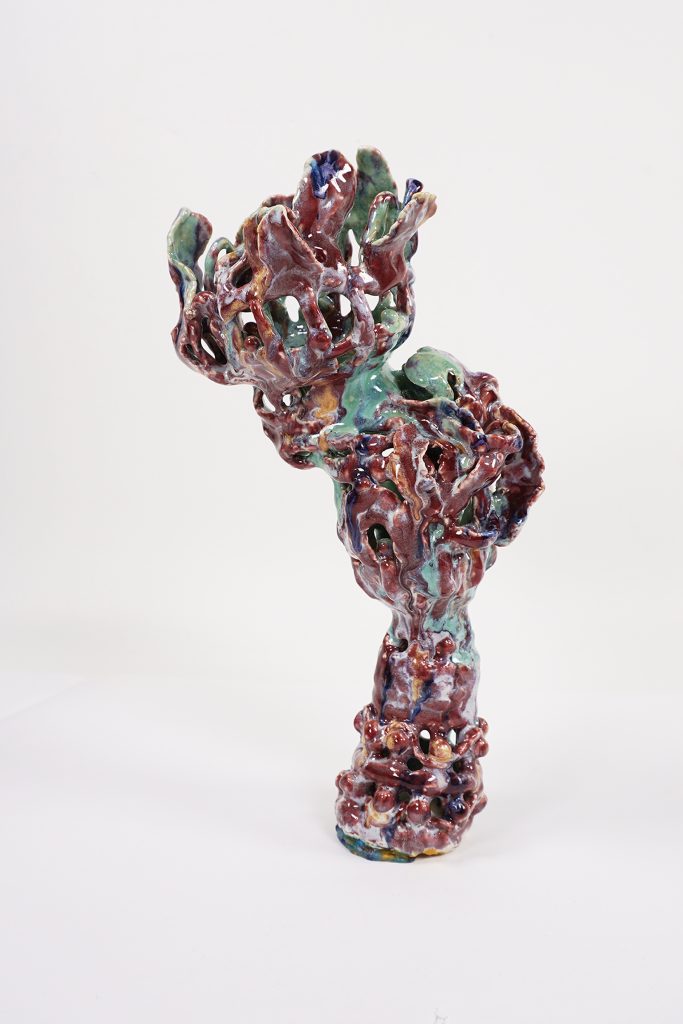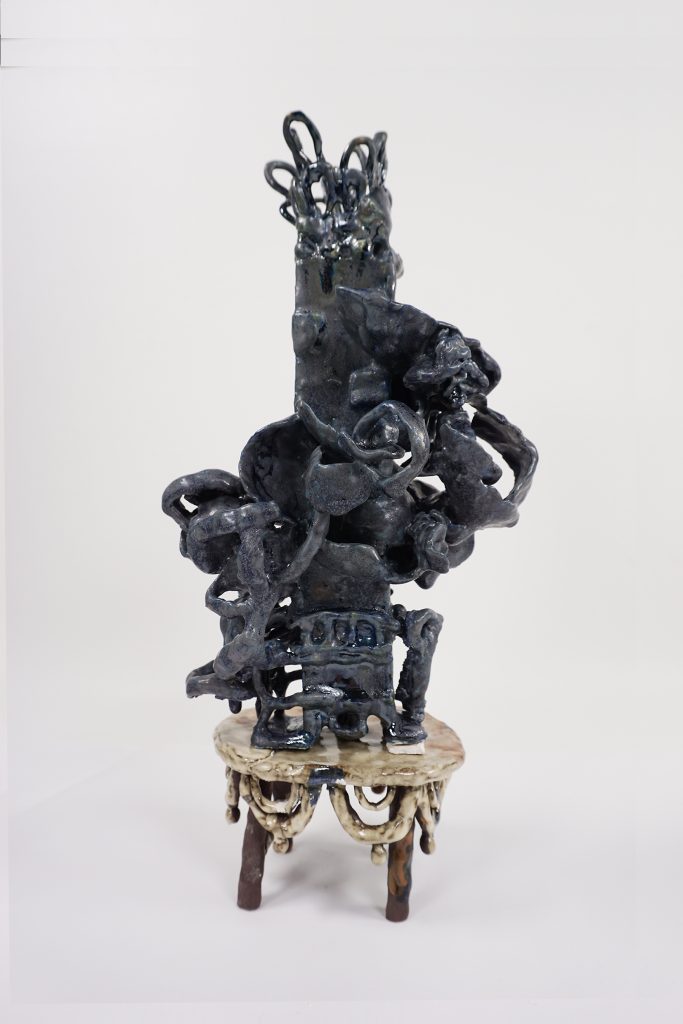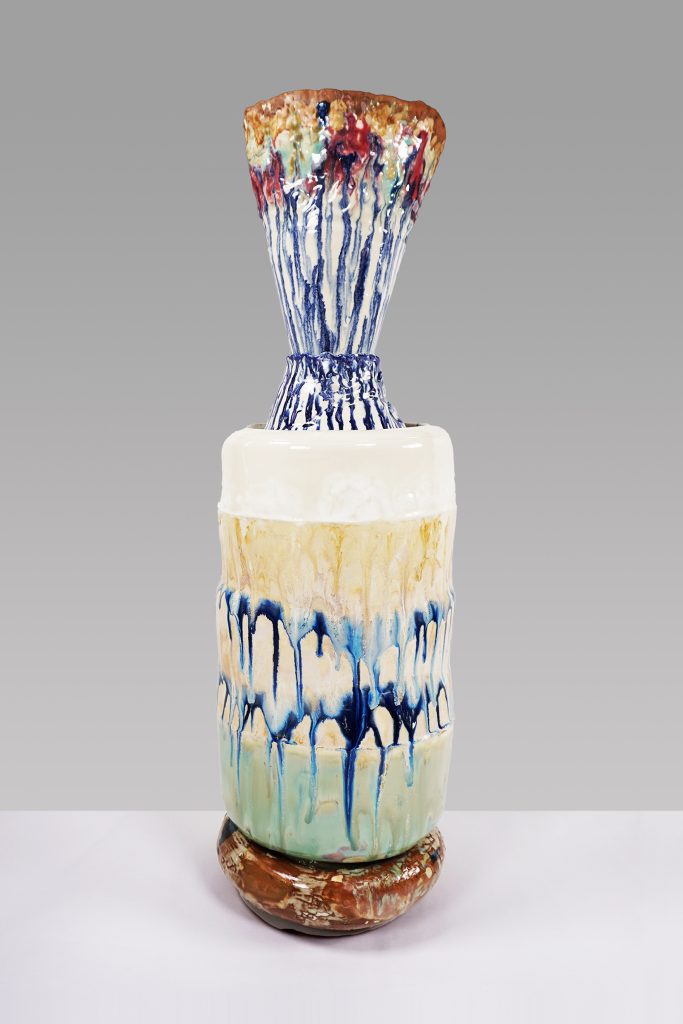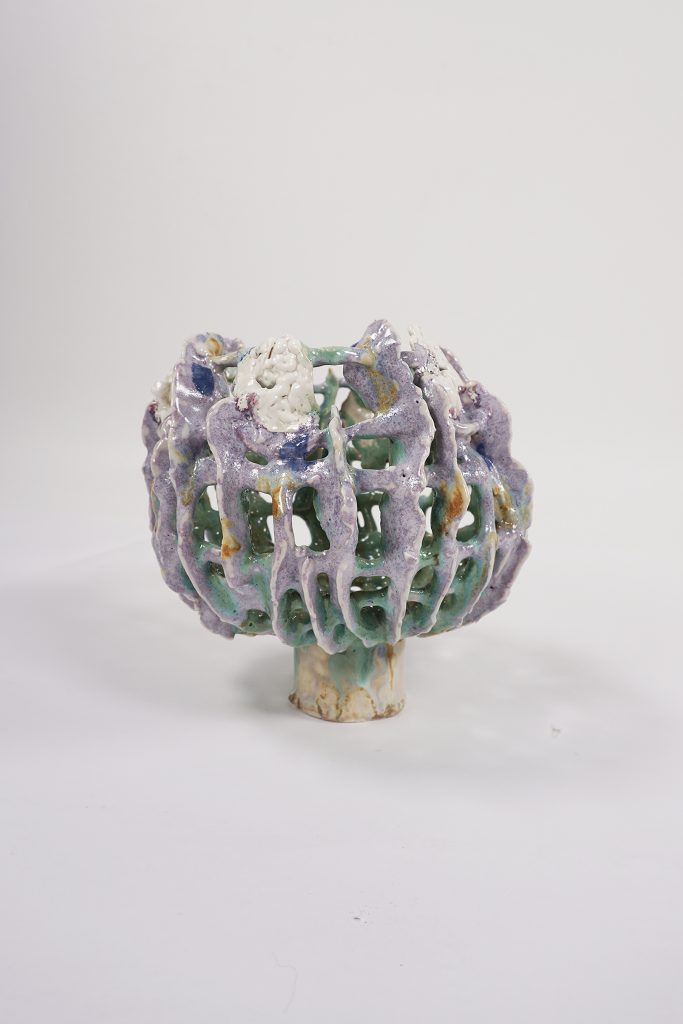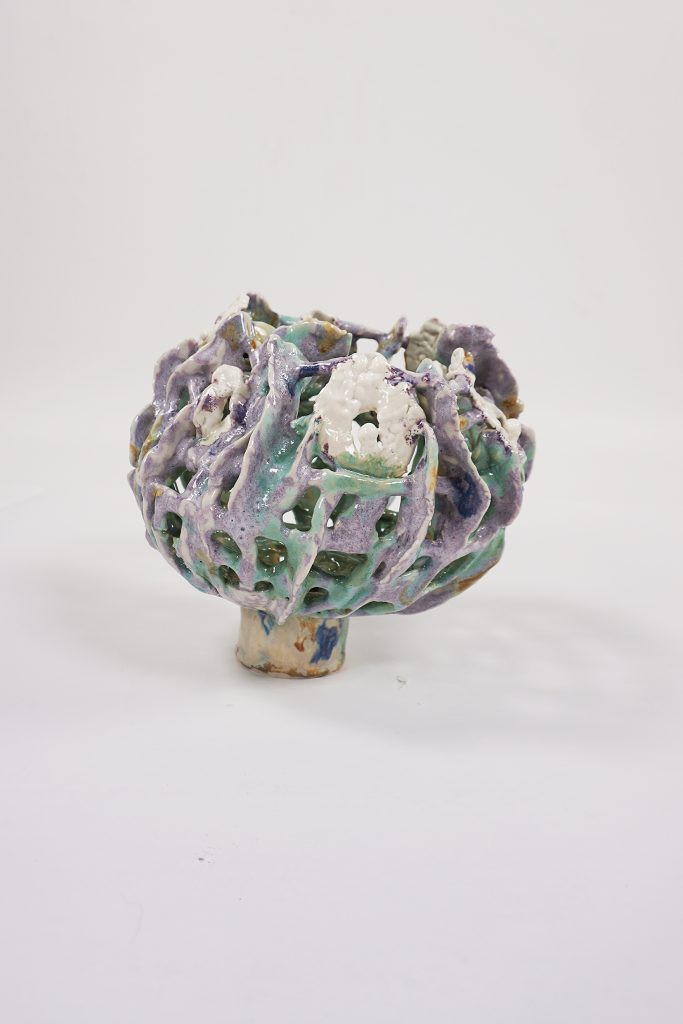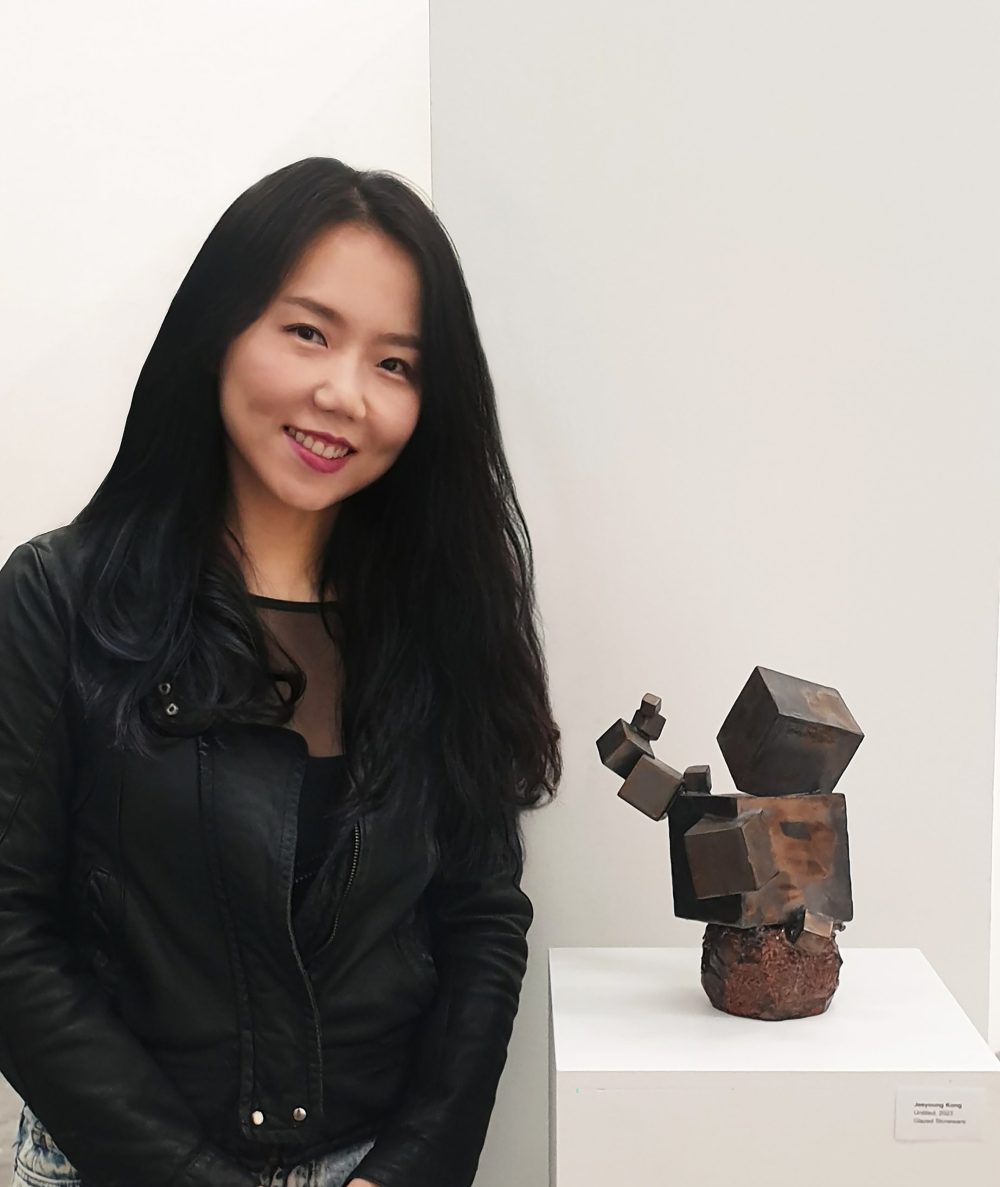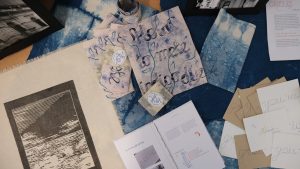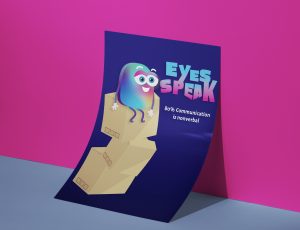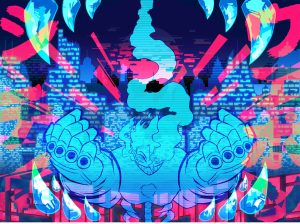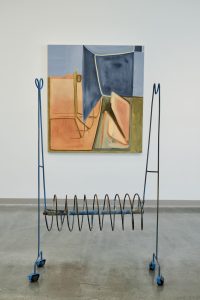My Life is Not Your Porn
Jeeyoung Kong
See it On Campus: Level 2
Visitor InfoECU Award Recipient
ECU Graduation Awards for Anti-Racism and Social Justice – Visual Arts – Honourable Mention
Mary Plumb Blade Award – Winner
Content Warning: Some of the works presented here contain disturbing images and themes. Viewer discretion is advised.
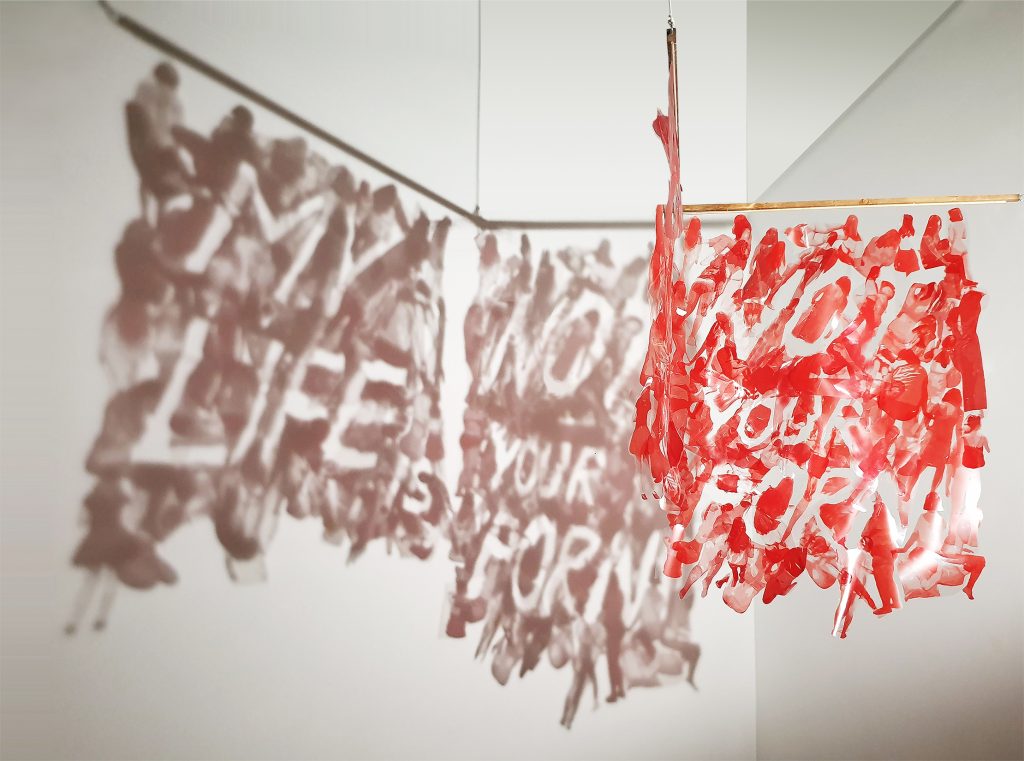
Transparent film, inks, fishing lines, wooden sticks. 60′(H) x 90′(W) x 35′(D)
My Life is Not Your Porn(2023) symbolizes the solidarity and resistance of women against digital sex crimes, predominantly gendered crimes where women are victims and men are the perpetrators. The title is borrowed from the slogans used during large-scale protests in South Korea in 2018 and 2019, where women rallied against the non-consensual filming and distribution of sexual images.
The society in which I grew up, South Korea, remains steeped in traditional Confucian values that uphold patriarchal structures. Despite rapid economic growth and technological advancements, sexual violence remains alarmingly prevalent, and gender equality lags behind. Digital sex crimes have been increasing, yet the punishments often fail to reflect the severity of these crimes. There have even been instances where responses from the police and courts have varied based on the gender of the perpetrator. For example, a woman who secretly photographed a male nude model and posted the photos online without consent was arrested within days, sentenced to 10 months in prison, and ordered to undergo 40 hours of counseling for sexual violence offenders. This is in stark contrast to many male perpetrators who have gone unpunished or received lenient sentences. This glaring double standard has fueled widespread anger and led to a series of large-scale protests by women in Korea.
#spycam #digitalsexcrimes #molka #genderedcrimes #hiddencameras #silkscreen #installationart #printmaking
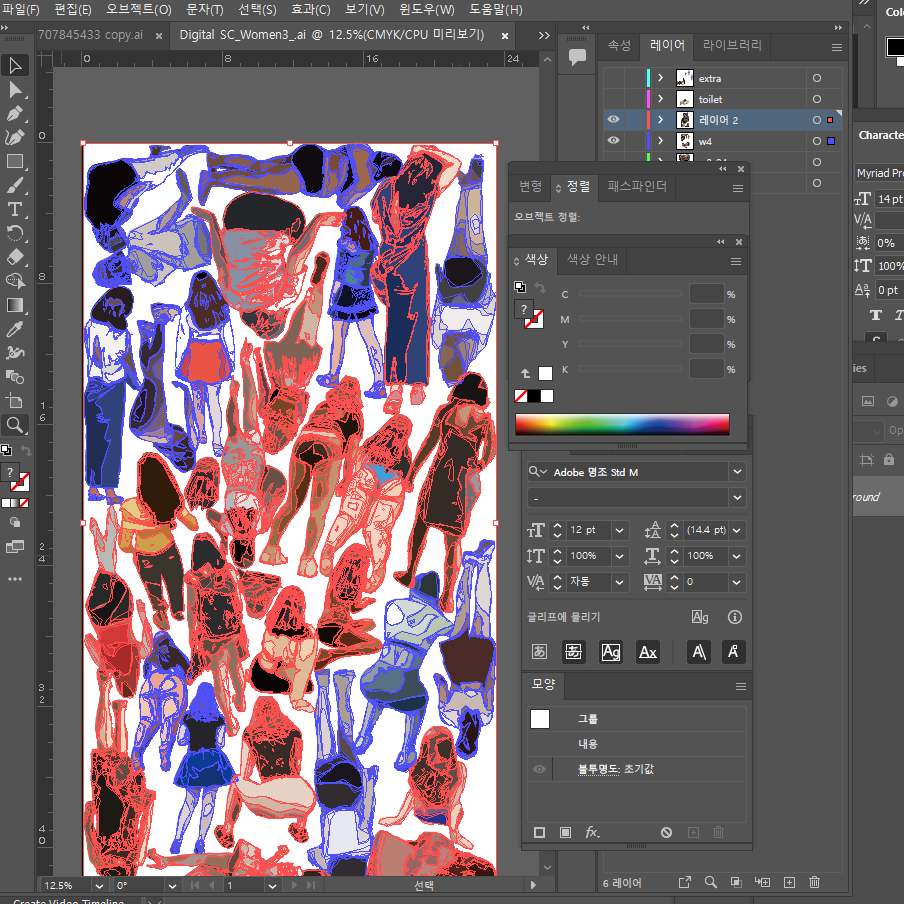

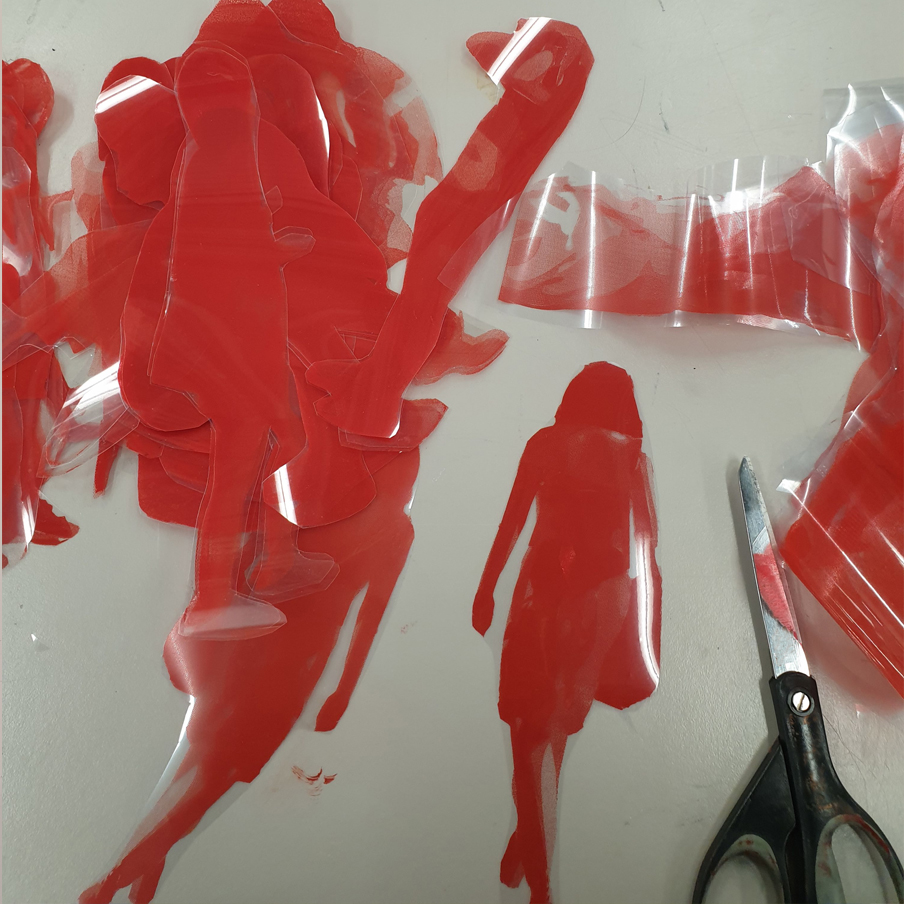
1. Simplify and vectorize hundreds of selected images.
2. Create screens for silkscreen printing.
3. Screenprint the designs on transparent film (no photo) and then cut out all the female figures printed.
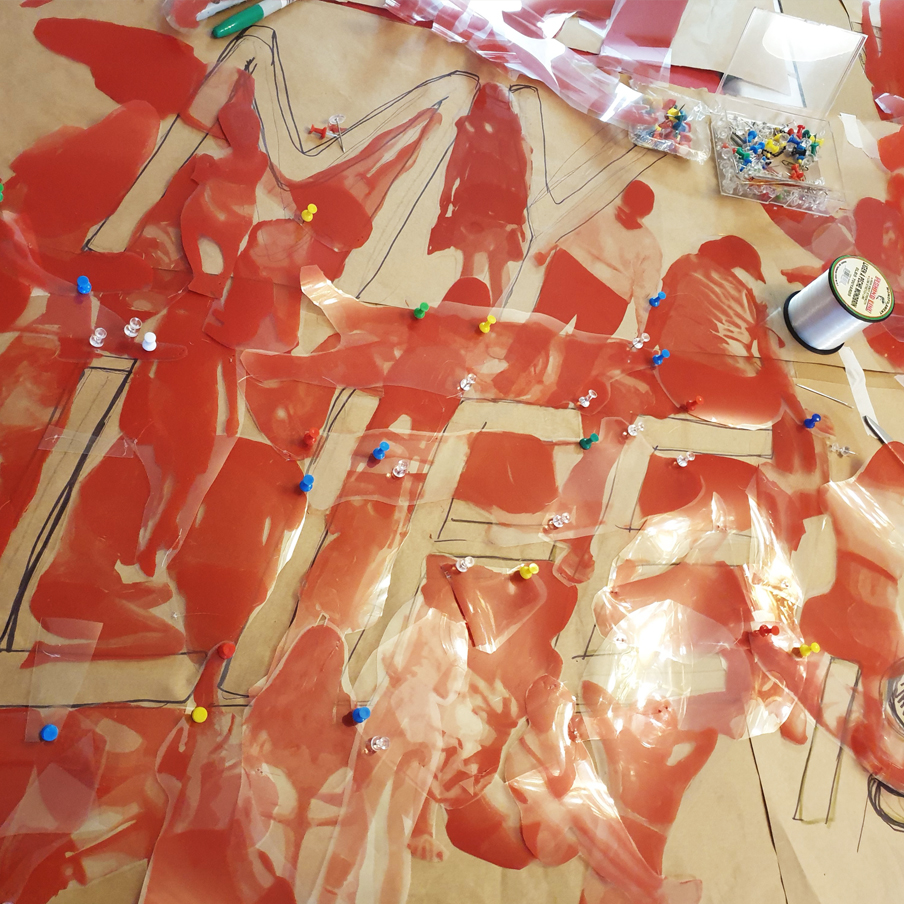
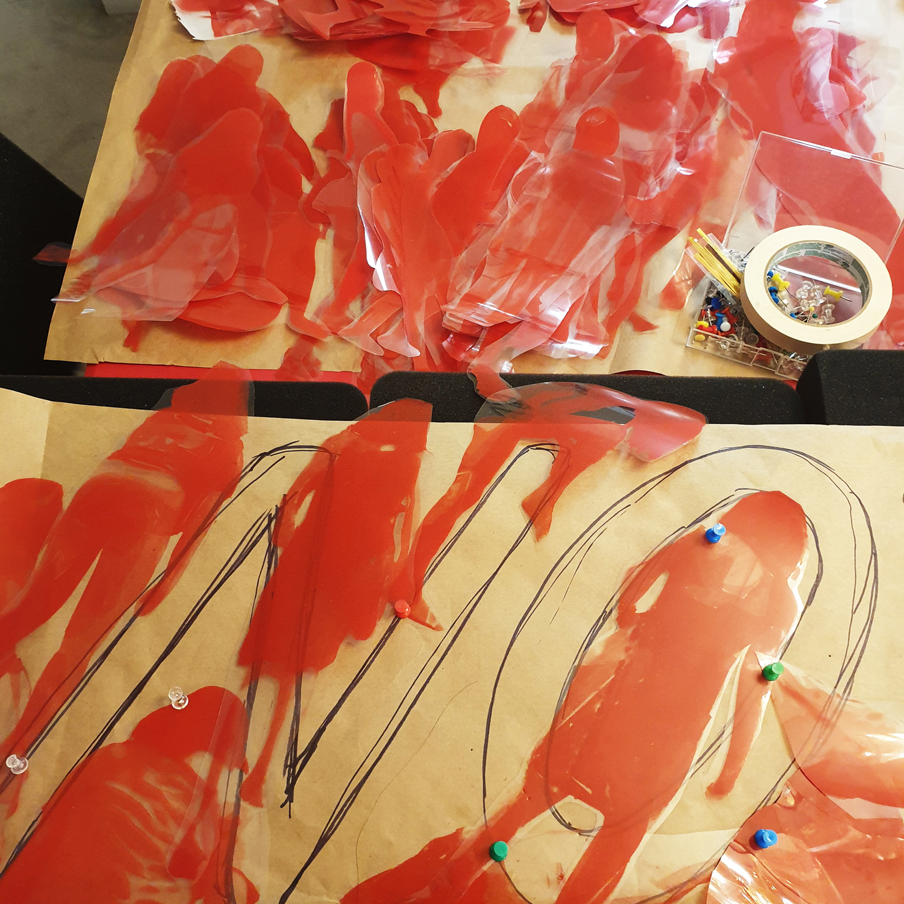
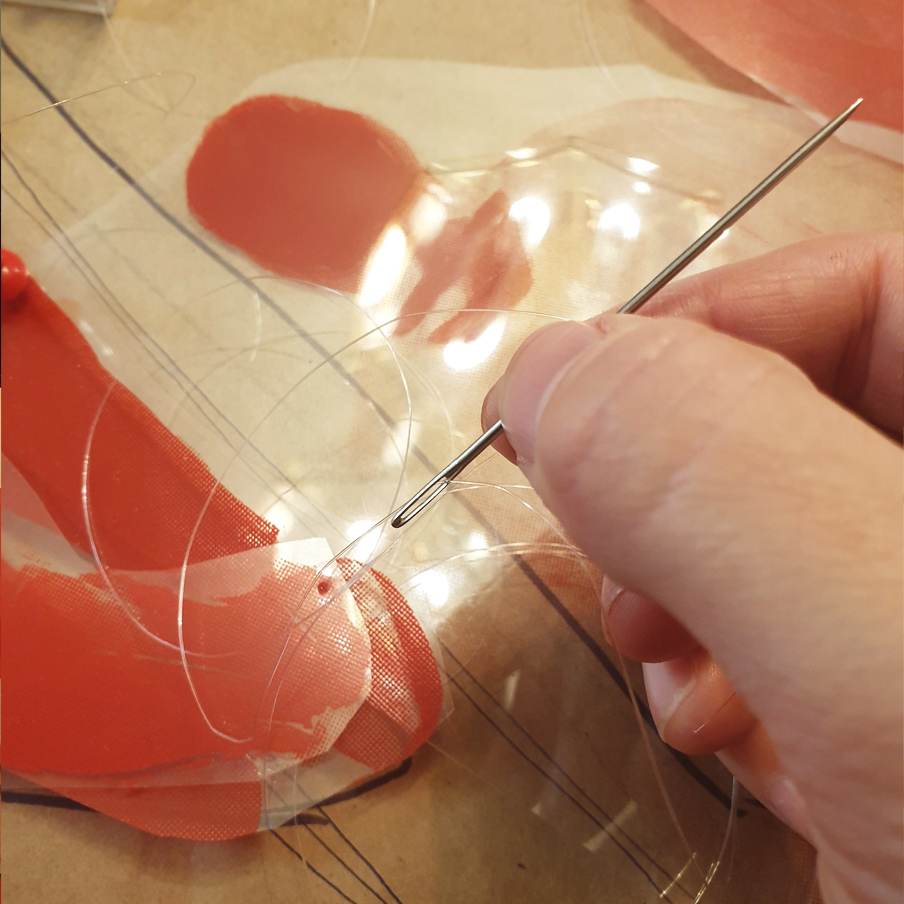
4. Arrange the cutouts to form the negative spaces in the sentence, “MY LIFE IS NOT YOUR PORN.”
5. Same description as 4.
6. Sew together all the female figures.
Upon entering the room, viewers are likely first drawn to the striking red color of the artwork, capturing their attention from a distance. The read means anger, outrage. As they approach, the shadow cast by the piece becomes apparent, revealing the sentence “MY LIFE IS NOT YOUR PORN” embedded within it. It is only upon closer inspection that the images of women presented in the artwork come into focus. Each image of the women is connected not with permanent glue but with a string that can be untied. This symbolizes that each woman’s experience is different, and they come together to resist and show solidarity when needed, but also hope for a society where each woman can return to a peaceful everyday life without the need for such resistance.
Home, Sweet Home
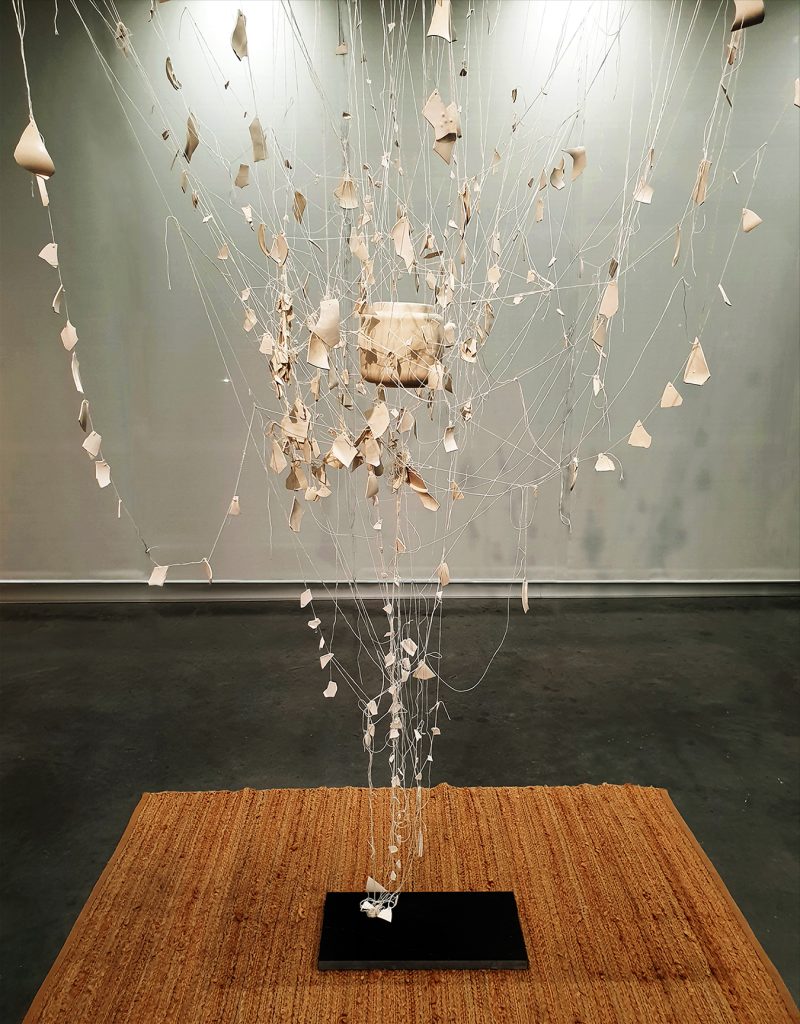
Glazed ceramics, strings, marble, rug. 120’(H) x 84’(W) x 84’(D)
This piece confronts the deeply ingrained societal issues of femicide and domestic violence prevalent in South Korea. Statistics reveal that nearly 81% of femicides in Korea between 2016 and 2021 were perpetrated by spouses or intimate partners, often within the supposed safety of the victims’ own homes. The pervasive patriarchal mindset, where men are traditionally viewed as heads of households, exacerbates this harrowing trend of ‘wife murder,’ highlighting a pressing need for prevention and intervention measures.
Central to the installation is an urn suspended from the ceiling, encircled by fragmented pieces symbolizing shattered lives. The rug laid on the floor, along with the black tombstone placed on top of it, serves as a poignant reminder of the domestic violence that has occurred inside the home and the many women who have tragically lost their lives as a result. Home, Sweet Home 홈, 스위트 홈 challenges the conventional notion that a home is an inviolable sanctuary, prompting reflection on whether it truly provides safety for all individuals.
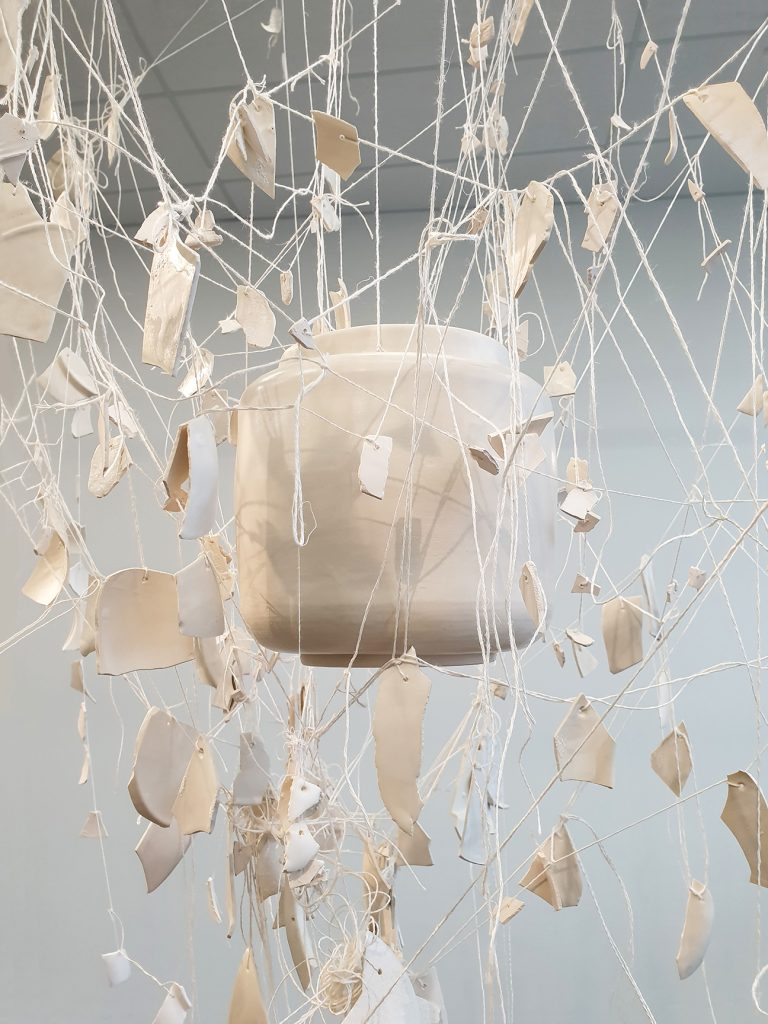

I Got Flowers Today
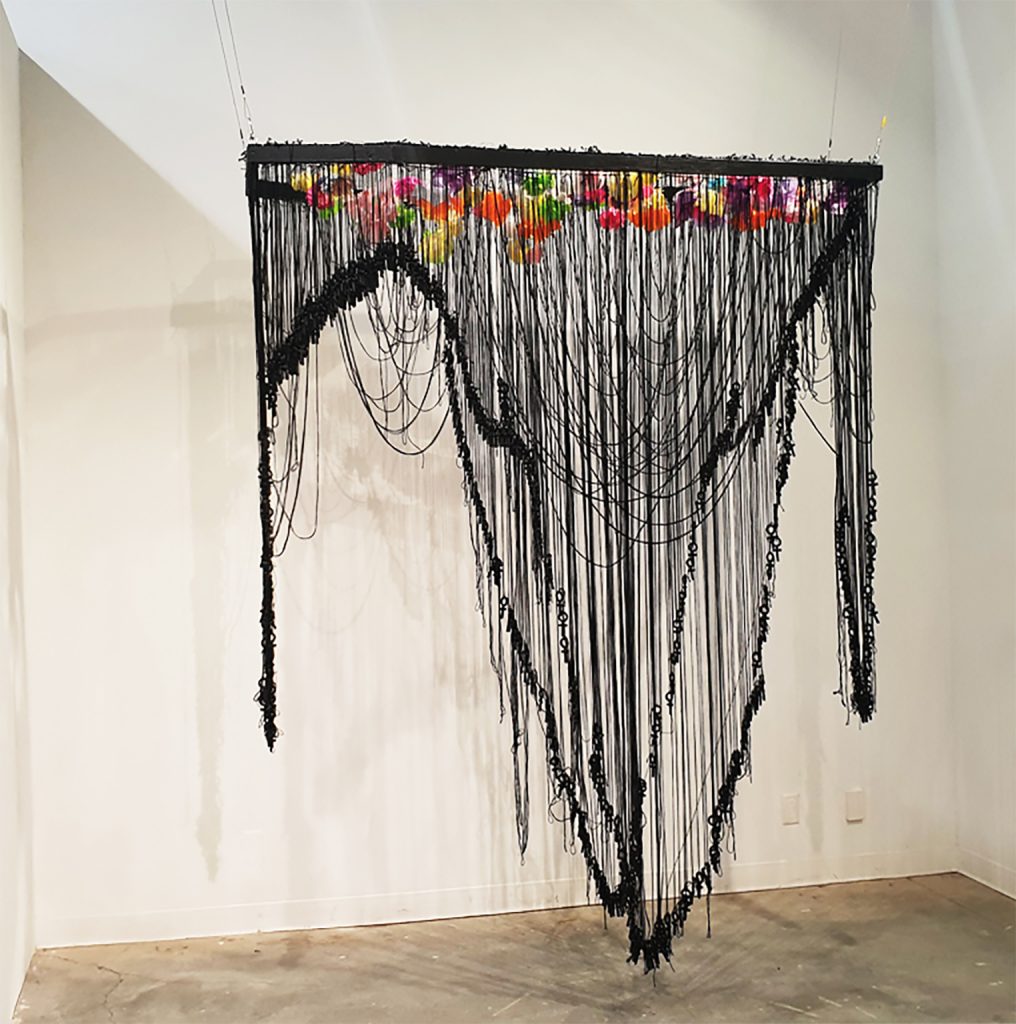
I Got Flowers Today. 나는 오늘 꽃을 받았어요. (2022)
Strings, plaster, tissue paper, wood. 90’(H) x 80’(W) x 24’(D)
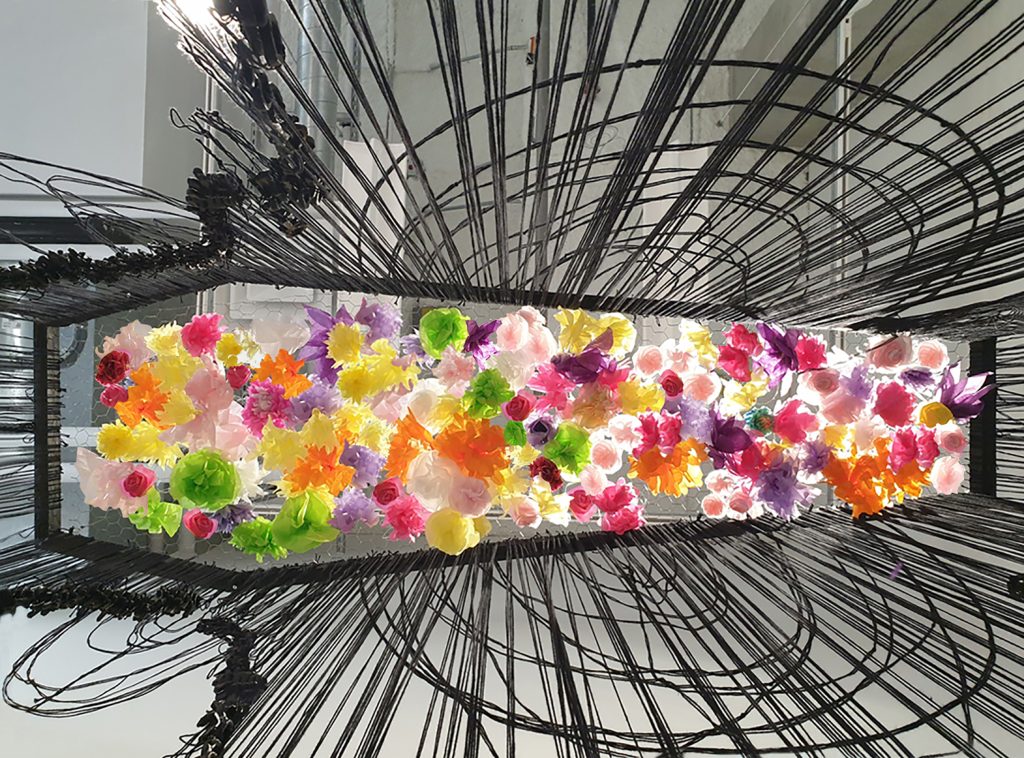
Inspired by Paulette Kelly’s poem “I Got Flowers Today,” this artwork bearing the same title mourns the tragic deaths of women, alongside Home, Sweet Home 홈, 스위트 홈 (2022).
From a distance, viewers can see numerous black strings hanging vertically from a frame suspended from the ceiling, and as they get closer, they can see black female gender symbols hanging beneath each string. When viewers enter the space surrounded by the strings and look up, they see colorful paper flowers filling the frame, revealing that the frame is indeed a coffin frame.
The paper flowers in this artwork are inspired by the elaborate paper flower decorations commonly used in traditional Korean funeral processions to adorn the bier carrying the deceased. The colorful flowers symbolize the hope for the deceased to go to a better place.
I Got Flowers Today
By Paulette Kelly
I got flowers today!
It wasn’t my birthday or any other special day.
We had our first argument last night;
And he said a lot of cruel things that really hurt;
I know that he is sorry and didn’t mean to say the things he said;
Because he sent me flowers today.
I got flowers today.
It wasn’t our anniversary or any other special day.
Last night, he threw me into a wall and started to choke me.
It seemed like a nightmare.
I couldn’t believe that it was real.
I woke up this morning sore and bruised all over.
I know he must be sorry.
Because he sent me flowers today.
I got flowers today!
It wasn’t our anniversary or any other special day;
Last night he threw me into a wall and then started choking me;
It seemed unreal, a nightmare, but you wake up from nightmares;
And I woke up this morning sore and bruised all over—but I know he is sorry;
Because he sent me flowers today.
I got flowers today!
And it wasn’t Valentines Day or any other special day;
Last night he beat me and threatened to kill me;
Make-up and long sleeves didn’t hide the cuts and bruises this time;
I couldn’t go to work today because I didn’t want anyone to know—but I know
he’s sorry;
Because he sent me flowers today.
I got flowers today!
And it wasn’t Mother’s Day or any other special day;
Last night he beat me again, and it was worse than all of the other times;
If I leave him, what will I do? How will I take care of the kids? What about
money?
I’m afraid of him, but I’m too scared and dependent to leave him! But he
must be sorry;
Because he sent me flowers today.
I got flowers today….
Today was a special day—it was the day of my funeral;
Last night he killed me;
If only I would have gathered the courage and strength to leave him;
I could have received help from the Women’s Shelter, but I didn’t ask for
their help;
So I got flowers today—for the last time.
* The texts in bold are by me.

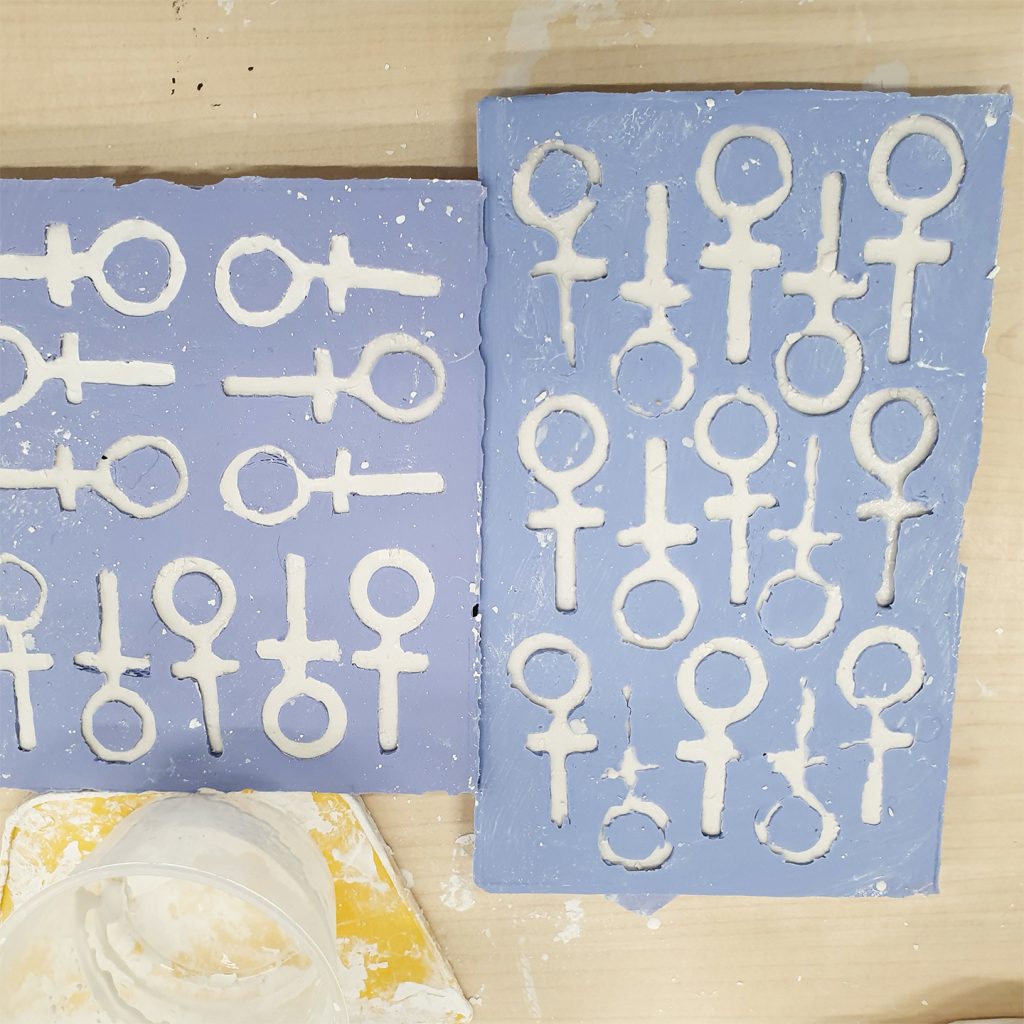
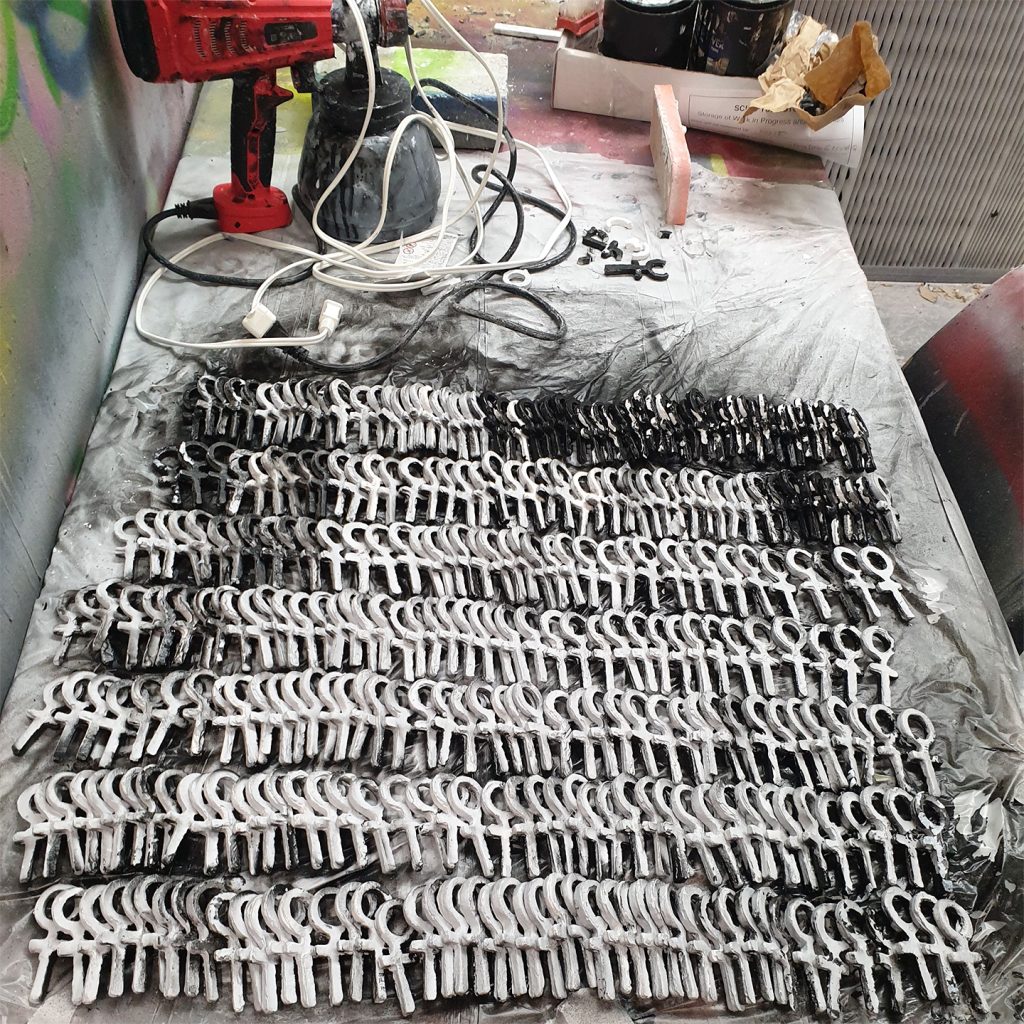

1 & 2. Create a mold. Cast female gender symbols in plaster.
3. Apply primer to the cast symbols.
4. Spray paint them.
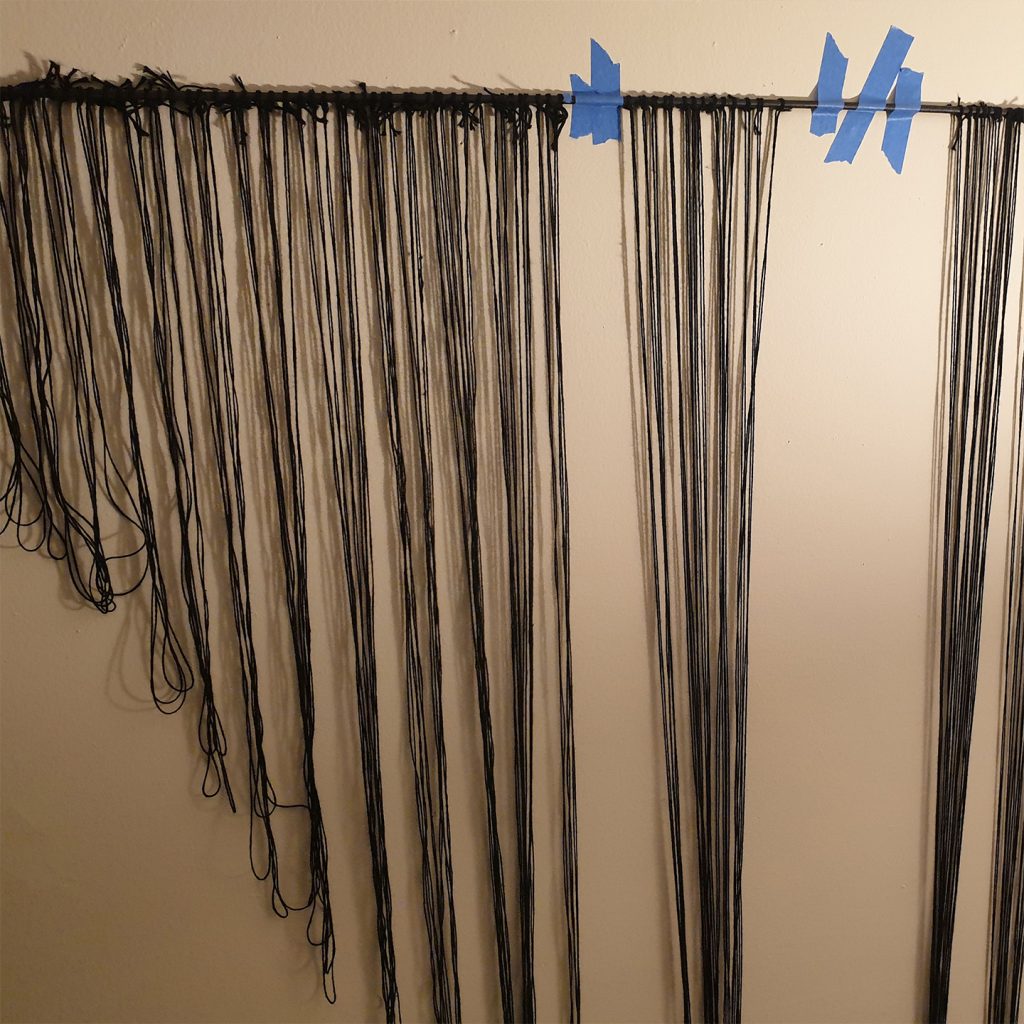
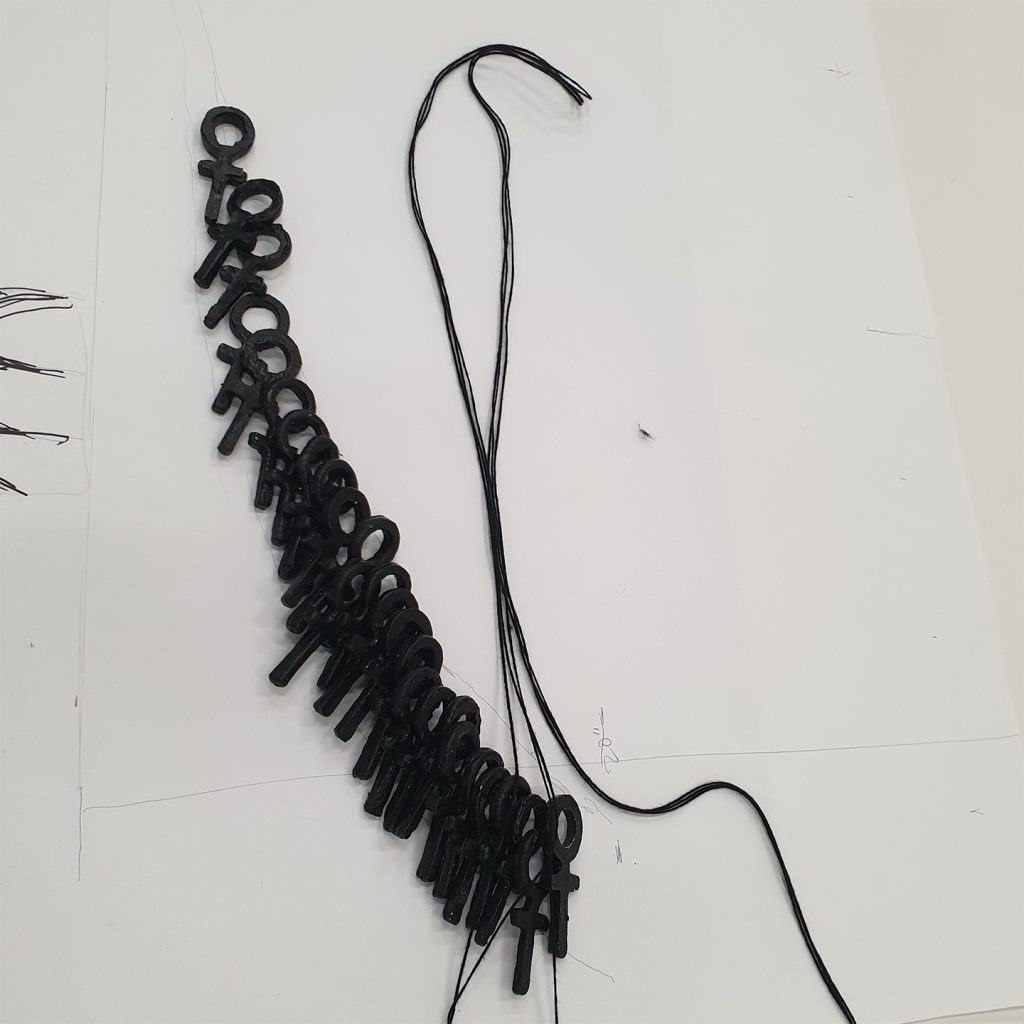
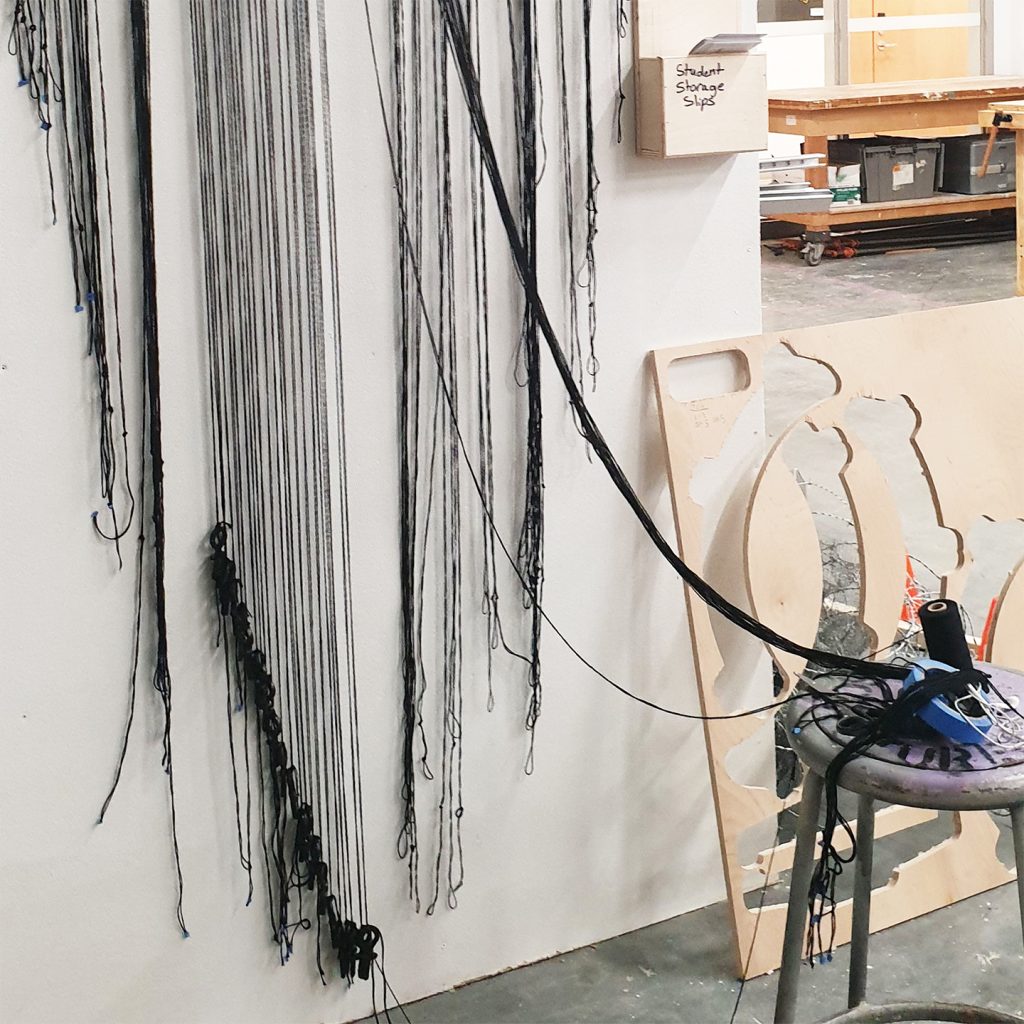
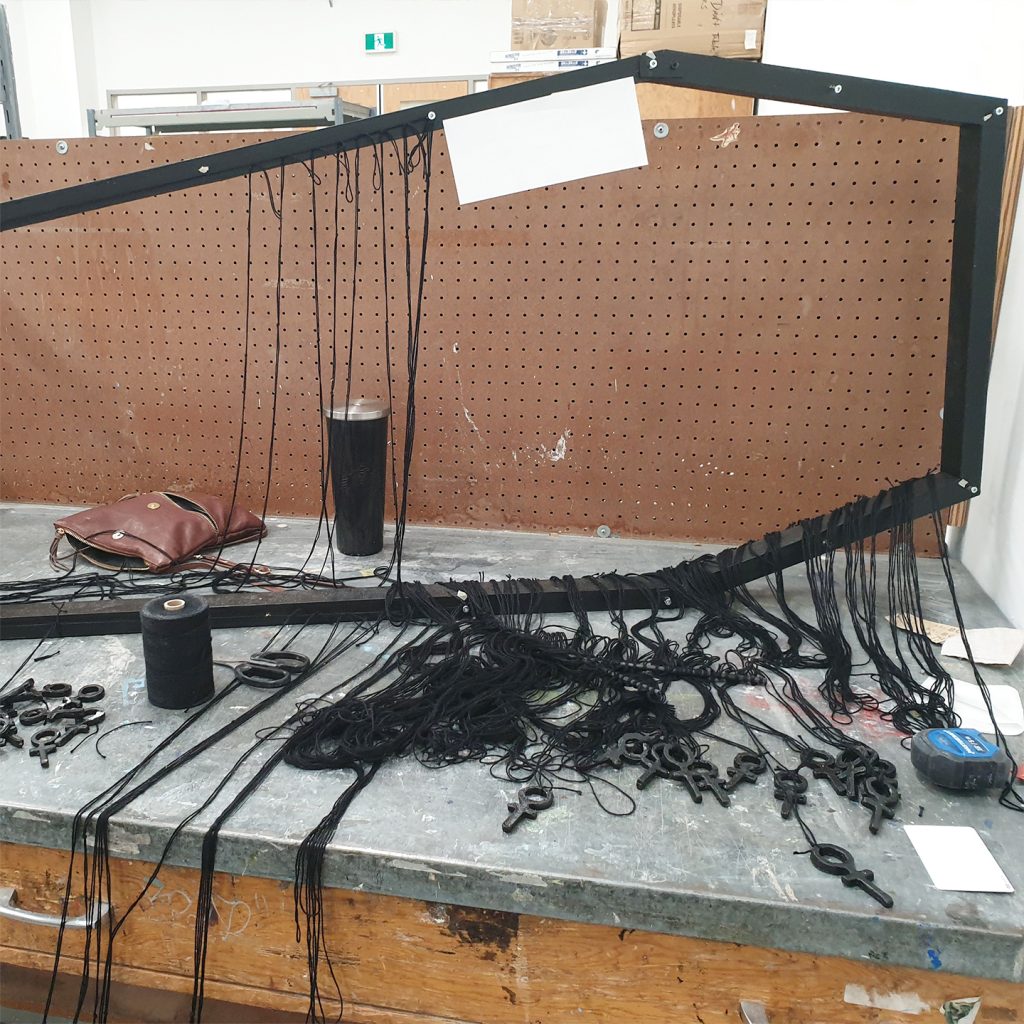
5. Untangle threads to a specific length.
6. Attach painted symbols to each thread as shown in photo 7.
7. Symbols are attached at the end of the threads
8. Affix the threads to the coffin frame I constructed.
9. Affix the paper flowers I created onto the coffin frame. (Refer to the worm’s-eye view of the photo preceding the poem.)
When You Were Smiling
When You Were Smiling (2023). Glazed Stoneware. 12’(H) x 10.5’(W) x 9’(D).
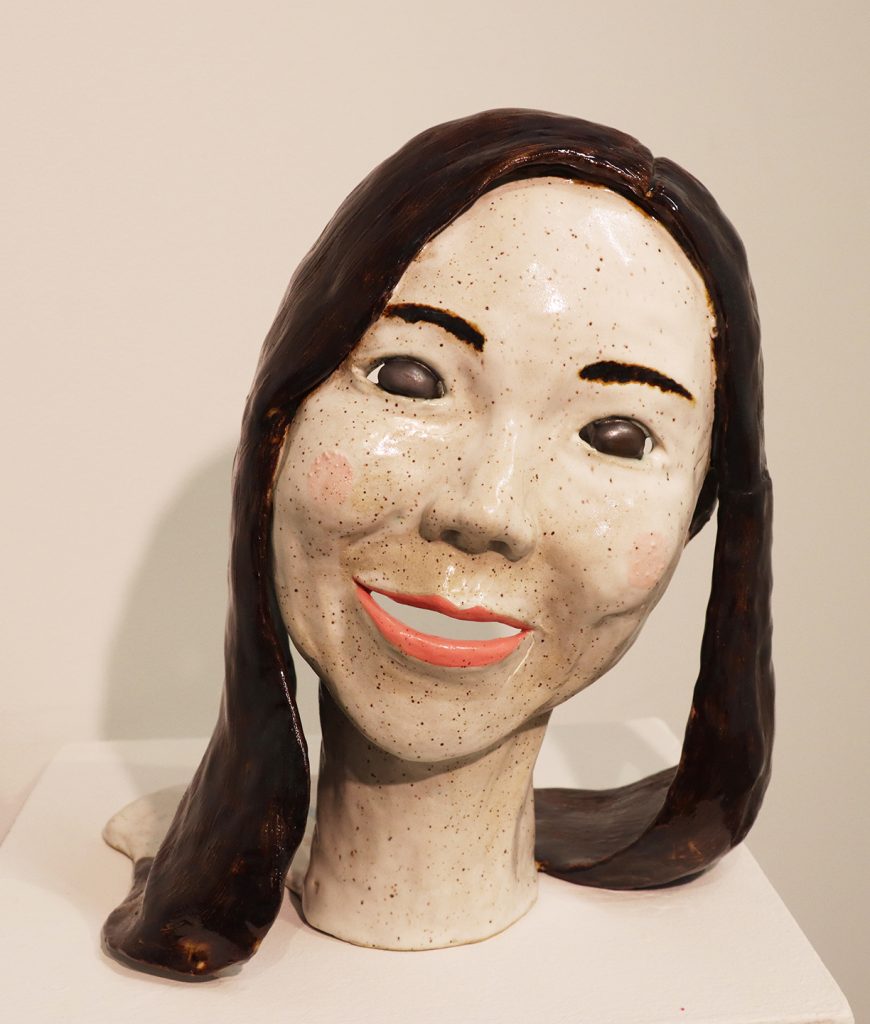
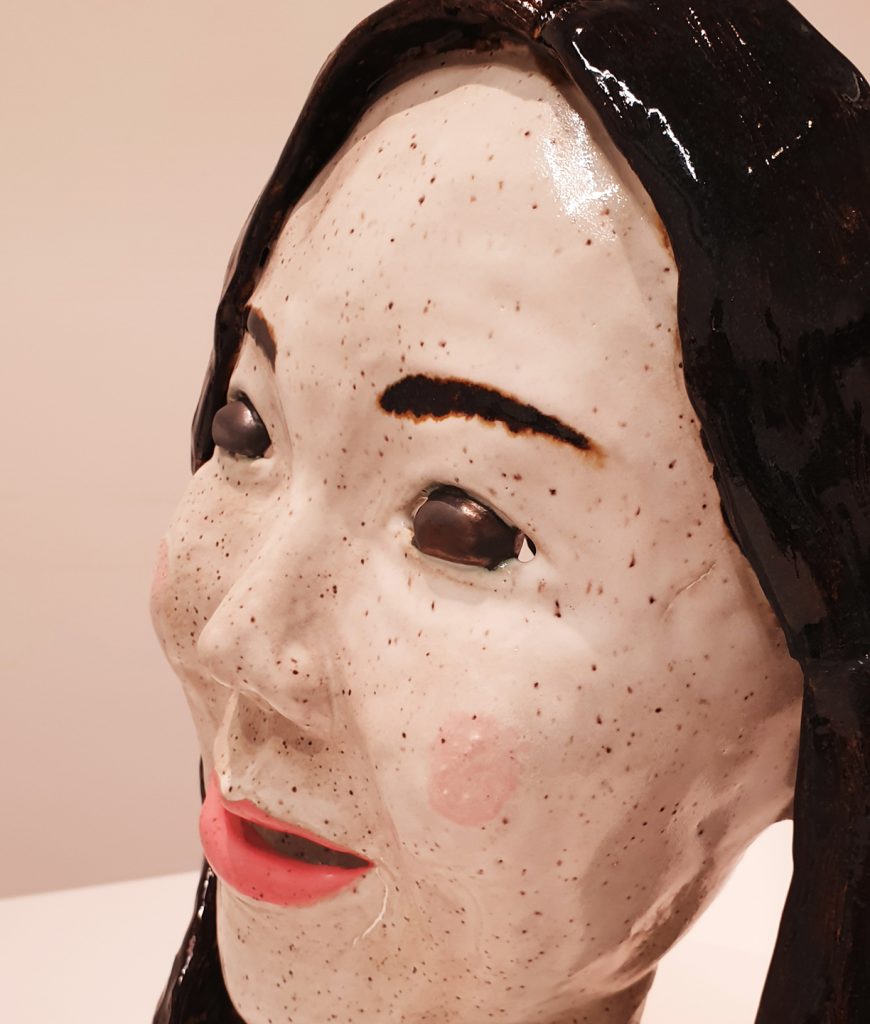
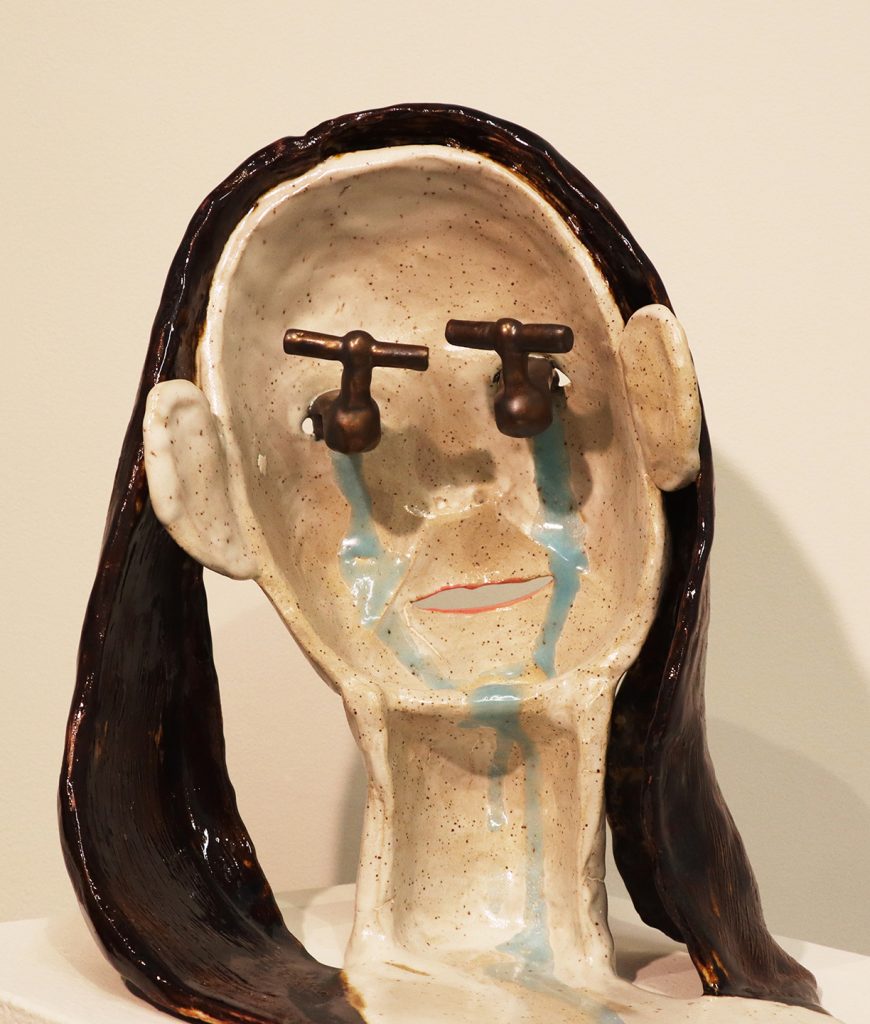
When You Were Smiling (2023) employs both convex and concave elements to delve into the concept of ’emotional labor,’ often disproportionately expected of women. At first glance, the artwork depicts a smiling woman. Upon closer inspection, however, it reveals a deeper, more complex reality hidden beneath the surface—her concealed tears and the hardship she silently endures.
The MMS
In patriarchal societies, the social meanings attributed to women’s bodies and men’s bodies differ significantly, irrespective of individual consent (Jung)*. For men, a woman’s naked body often symbolizes pleasure, with some individuals even resorting to monetary transactions for access (Jung)*. Conversely, women frequently face the weaponization of their nudity, exemplified by digital sex crimes like the Nth Room** incident.
In contrast, a man’s naked body is subject to a distinct interpretation. While instances of women using male nudity as a means of coercion are rare, men frequently employ images of their genitals to solicit explicit photos from women or to engage in blackmail. Despite the exposure of male genitals constituting a form of sexual harassment and a punishable offense, such behavior remains prevalent.
In North America, the phenomenon of women receiving unsolicited and offensive photos from cisgender men has become alarmingly commonplace, leading to desensitization among both victims and observers.
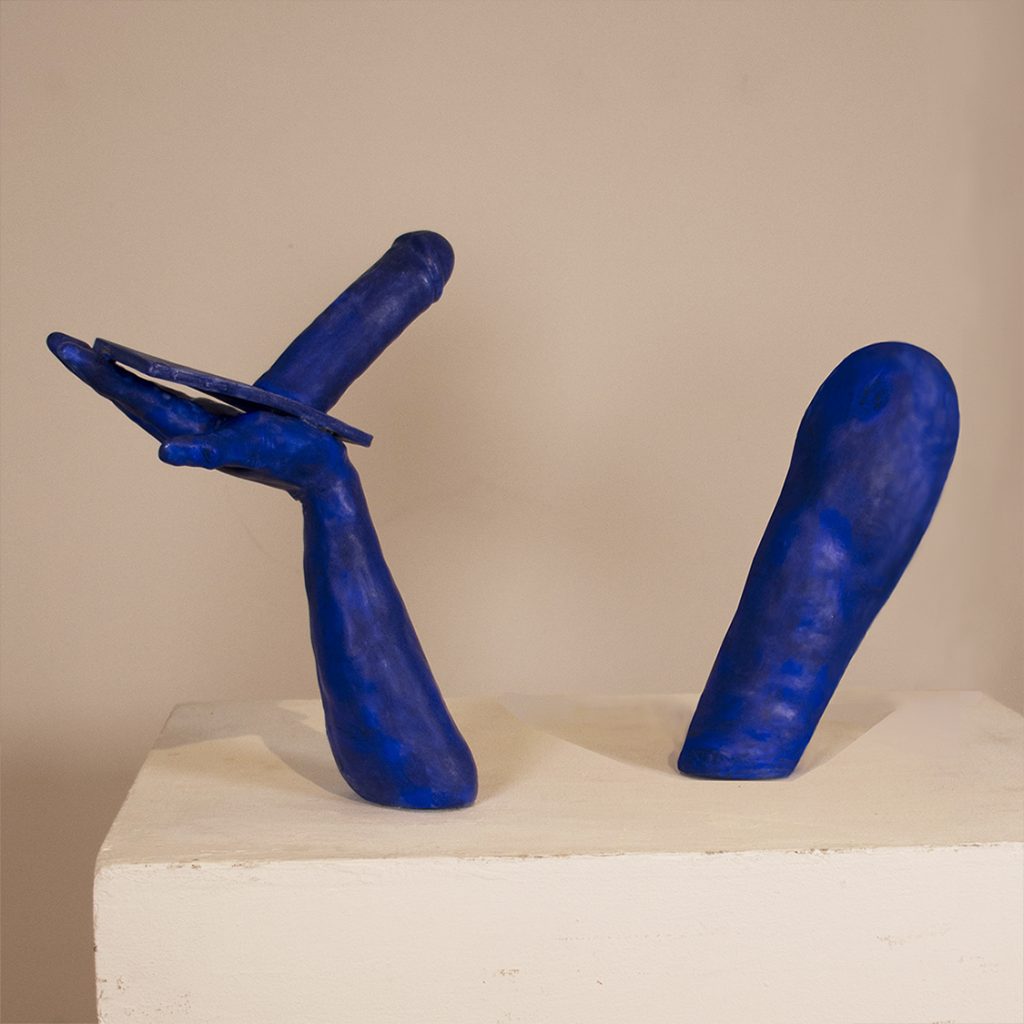
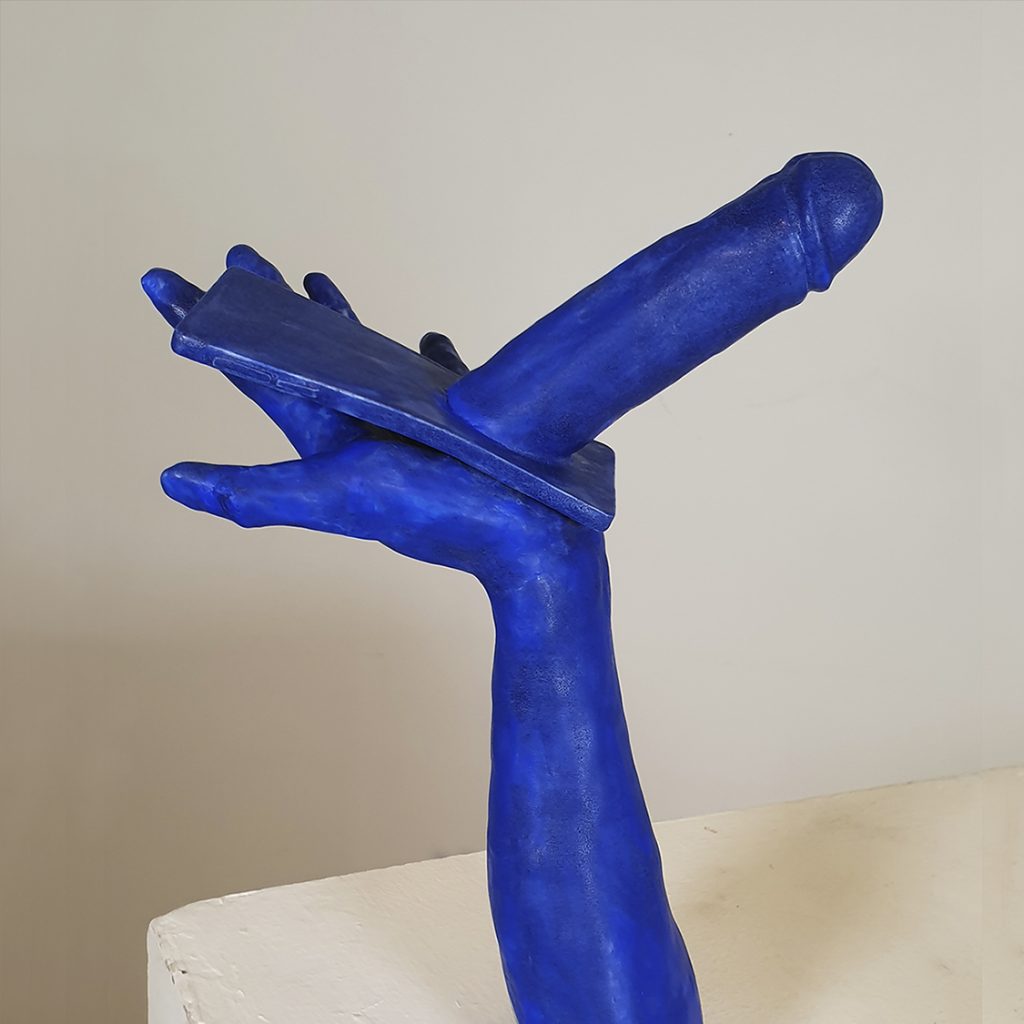
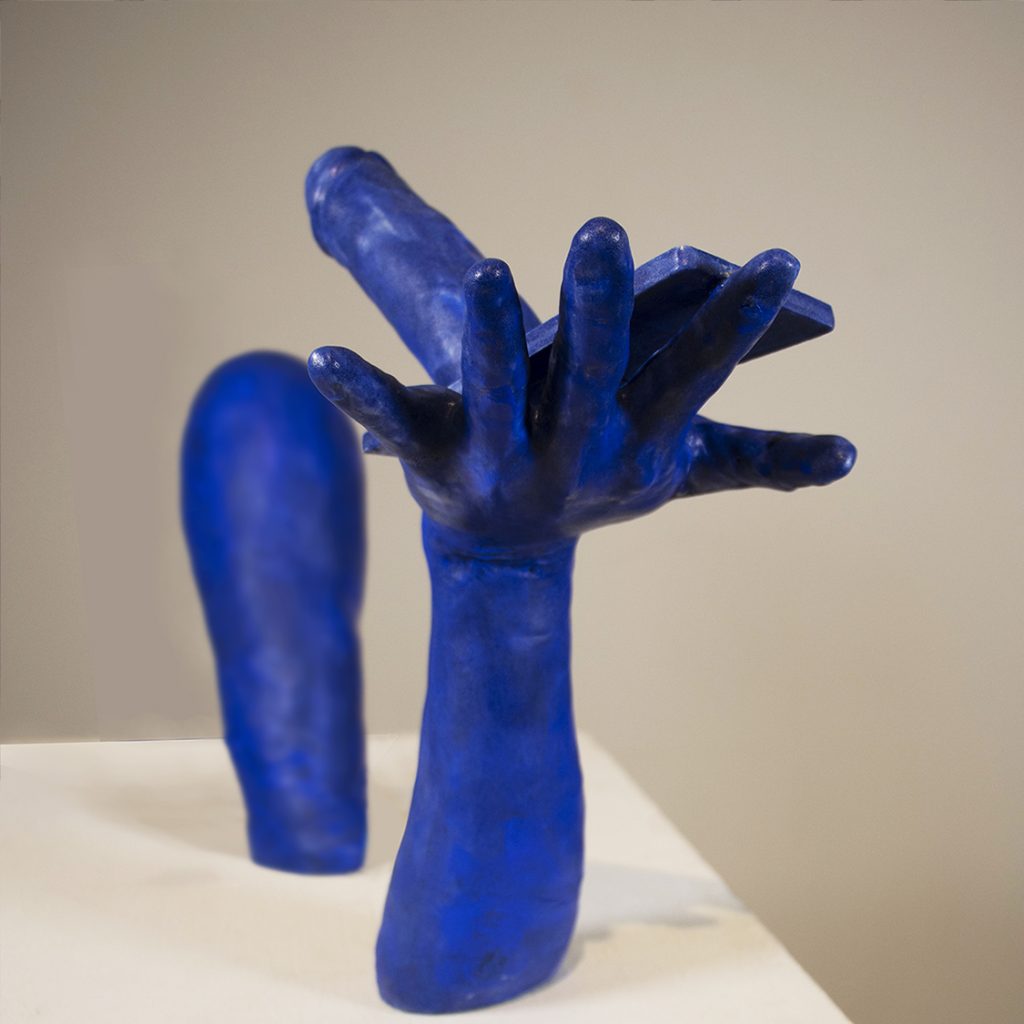
The MMS (2023) Glazed Porcelain. 10(H) x 15(W) * 6(D)
The MMS (2023) captures the sensation of ‘invasion’ experienced upon receiving unsolicited genital images and serves as a form of resistance against such actions, predominantly perpetrated by men. The notion of ‘invasion’ is depicted through a three-dimensional representation of a penis emerging from a mobile phone, rather than a mere depiction of genitalia on the device’s screen.
Resistance is symbolized through the positioning of the hand, with particular emphasis on the disjointed upper and lower arms. The outward bend of the thumb and the fingers kept away from the penis reflect a deliberate attempt to avoid direct contact with the phone, conveying a sense of aversion and defiance.
References
*Jung, Hee-jin. “[정희진의 낯선 사이] 한국 남성의 더러운 잠.” The Kyunghyang Shinmun – 경향신문, 19 Feb. 2017, m.khan.co.kr/opinion/column/article/201702191419001.
Radford, Jill, and Diana E.H. Russell. Femicide: The Politics of Woman Killing. Open University Press, 1992.
Wikipedia. “Nth Room Case.” Wikipedia, Wikimedia Foundation, 29 Nov. 2023, en.wikipedia.org/wiki/Nth_Room_case.
**YOON, SO-YEON. “[Debriefing] ‘Nth Room’: A Digital Prison of Sexual Slavery.” [DEBRIEFING] “Nth Room”: A Digital Prison of Sexual Slavery, 29 Mar. 2020, koreajoongangdaily.joins.com/2020/03/29/features/DEBRIEFING-Nth-room-A-digital-prison-of-sexual-slavery/3075441.html.
We are being More Than Generous
: Disputes Between Landlords and Immigrant Tenants
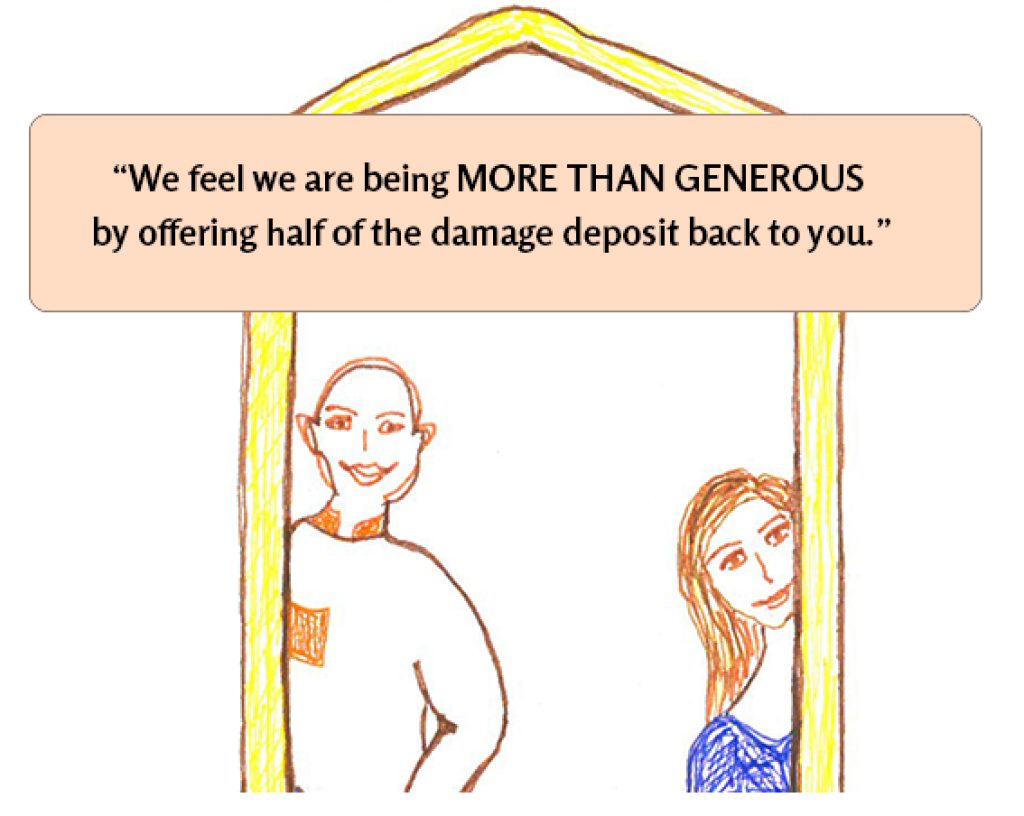
Identities are fluid, influenced by societal dynamics and individual encounters. Before coming to Canada, my identity centered around my gender, navigating a male-dominated society. However, after relocating, my identity has evolved to encompass that of an Asian immigrant, adapting to a new culture and language. My piece, We Are Being More Than Generous (2022), reflects my experiences in Canada, particularly an incident where landlords unlawfully withheld my security deposit.
Uncontainable: I am not ready to hold
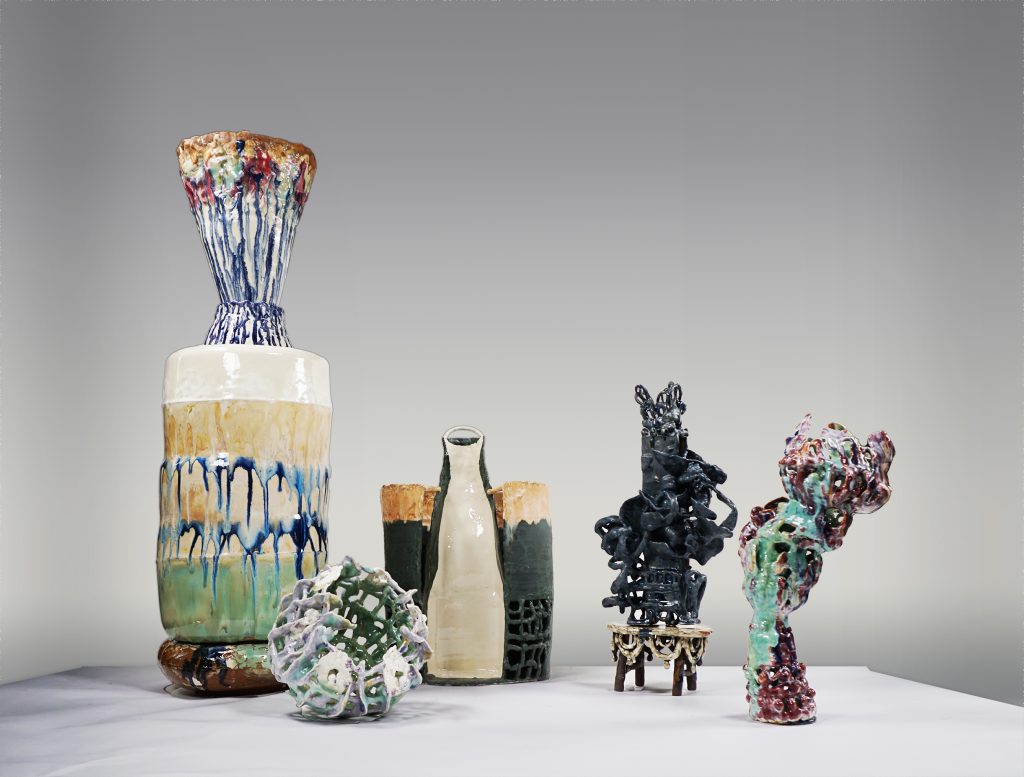
Glazed Ceramics. Dimensions Variable.
A group of ceramic vessels, symbolizing complex and overwhelming emotions, embodies feelings that cannot be fully comprehended or contained within oneself.
Glazed Porcelain 6’(H) x 6.5’(W) x 6.5’(D)
